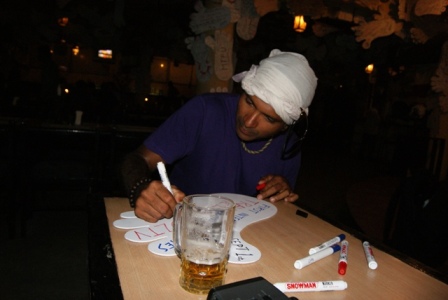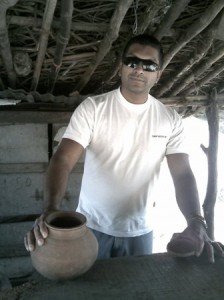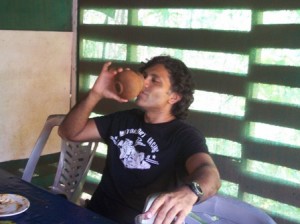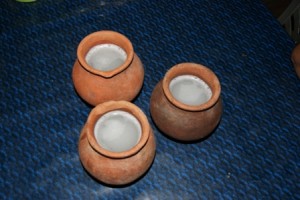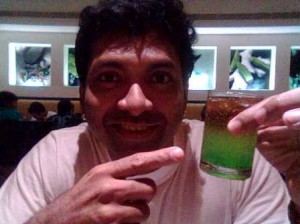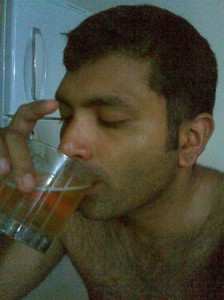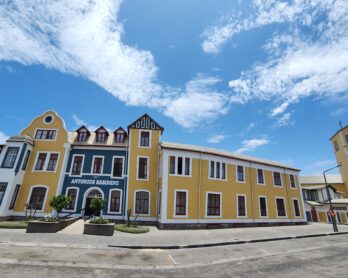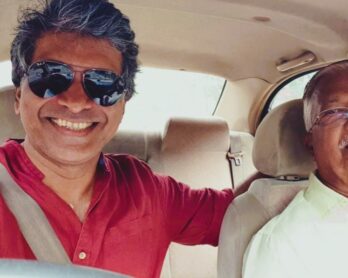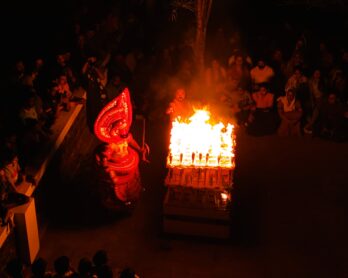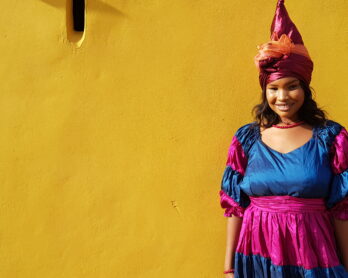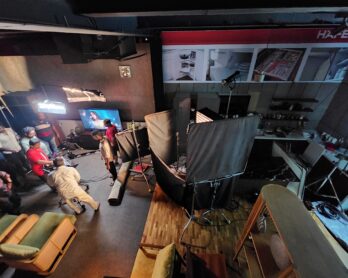Hic! It’s time to make amends.
Since the first tourist set out – maps, bags, spirit of adventure, a premature but prickly pining for home, et al – tourism has followed many paths: heritage and medical to eco and spiritual. From the not-so-widely-spoken but practiced sex tourism to new niches like ‘graveyard’ and ‘LP’ tourism (see earlier post ‘The Walking Tourist’). A visit to Napa Valley or Nashik can be passed off for ‘wine tourism’ and everywhere else during summer, ‘beer tourism’. In the froth of all this action, the tour operators and managers and ministers sorely missed any land’s most innate, earthly, definitive contribution to tourism. The one that has been picking up the weary traveler, putting new spring into the step of the backpacker, adding a frenetic rhythm to the frenzied movements of that impromptu beach gig and breaking every barrier that cocooned the local from the visitor.No cheers to that.
I have decided to bring justice to this deprived state of affairs – to play Macumazahn to Umbopa / Incubu and reinstate the rightful king. At least give everything their rightful place. During many of my travels, I have found the nicest people in the toddy shops and feni shacks; the numbers were overwhelmingly obnoxious in the snazzy pubs or were wrapped around pairs. The booze was invariably always worth every tricky trip I had to make to the loo gingerly stepping over the sleeping mutt or turning down services offered with pursed lips and click-clack sounds en route politely without looking tempted. One rainy night in border Nepal, the adventures I had after a bottle of tongba, well… I have forgotten. So once when I was in Manipur, I decided to relive them. Yes, while many ethnic aqua vitae crossed over and were influenced from across borders, there are many to which we have our own distilled copyrights. Here is a list of the better tasting / known ones from around our own tipple-loving desh.
Feni / Goa
This is traditionally made from coconut or cashew nut. The one from cashew is a personal favourite and is more popular too for its trademark sweet-pungent flavour and edgy potency. The cashew apples are pulverised into a cake and placed in a stone basin with a small outlet for the juice to flow out when a heavy boulder is placed over it. The juice is allowed to ferment in earth pots over several days. This collected juice, called neer, is then distilled using traditional distilling methods. The neer is also popular for its laxative properties. The first distillation, the urrac, can be taken neat, the second one, cazulo, is stronger and the third strongest one is feni. Numerous dainty shacks along the beach line will whip up wondrous cocktails with coke or tonic water. Just don’t leave too soon and you are in for some memorable stuff you will soon claim to have forgotten.We got coconuts and cashews in Kerala. So why don’t they make it there? The only thing I remember was this bothersome query worrying me. Then, I remembered that Kerala had toddy.
Kallu aka Toddy / Kerala
Would anybody dare ban Calypso from Trinidad and Tobago? Well, somebody just tried, in Kerala. An obviously out-of-touch high court judge recommended the state government consider banning the ages-old drink of the land, kallu or toddy. The government, while assuring supply of quality toddy – allaying the fears of the judge – went ahead and declared it a ‘health drink.’ Save such minor hiccups, toddy has been made in this little southern state (and I been drinking it) for centuries. The more popular variety is made from palm trees where the sap is collected from the cut flowers into a container that is tied to the budding flower. This collected sap is then fermented which become kallu. The freshly collected sap is also divine – anytime you see a tapper come down with the fresh sap, think not twice before you bribe him to part with some. A difficult task as the tappers’ union of Kerala (there are unions for everything in this labour-torn state) has mandated that they are not supposed to sell it except in authorised kallu shops.Kallu is sold in humdrum buildings with a glaringly ordinary signage every two kilometres of any road in Kerala; it becomes three in Tamil Nadu and four in Andhra Pradesh. In Maharashtra, it makes a popular appearance as ‘taadi.’
Tongba / Sikkim
For once, the pride of name is given to the vessel that holds the elixir – which is actually called ‘jaand.’ Whole grain millet is cooked and then cooled; it is then mixed with a form of locally made yeast. The mass is then collected and placed usually in a bamboo basket for two days afterwards which it is packed into airtight earth pots for up to a fortnight – fermenting it. This mass – now officially the ‘jaand’ – is stored for about six months. It is then taken out in a container and boiled water is poured over it; hold it for five minutes and it is ready to be sipped – usually with bamboo straws.
Bhang / Rajasthan
This is one that has been historically known to break all barriers – who hasn’t seen those wonderful cross-continental pictures of naked sadhus with glaze-eyed goras, all aglow in a kind of cosmic bonhomie? Yes, there are camels in the background and hashish-filled chillums in the foreground and angels all around. Yes, it is the Pushkar Fair. Then, it doesn’t have to be the Pushkar Fair; just Rajasthan is good enough. Bhang is cannabis in its many avatars, whose commercial use is banned in our country. But we being enterprising – or culturally loyal, depending on how you look at it – have devised ways to circumvent it and it is called ‘bhang ki tandai’ the long-winded way. It is really like lassi with a twist – can be downed in quick swigs, the bladder screams first and gravity hurtles later. Prepared by mixing cannabis with a cold invigorating drink of milk, sugar, almonds, saffron and pepper.Zutho / Nagaland
While the European staple beer is made from barley malt, in the East it is rice. The Japanese swear – they don’t really – by their sake while in India we have the zutho. During both my visits to the Hornbill Festival in Nagaland, among my fondest memories are washing down countless pork momos with zutho from seemingly bottomless pitchers – thanks to the many graceful friends and acquaintances who hosted me during both the editions of the seven-day festival. Made from fermenting rice with yeast, this tastes just like the sake. Or the sake tastes just like this. Definitely a boon for the land considering that open sale of liquor is banned in the state. Everybody in the family – regardless of age or gender – are initiated to zutho at an early age. Available in varying levels of potency – rendered so by the duration of fermentation – zutho is usually served with soya seed mash or just red chillies. Blow your brains out if you choose to even nibble into the red chillies with your zutho – Nagaland is famed for having among the hottest chillies in the world! Or just stick to the comparatively harmless momos, like I did and you gallon down the zutho. Probably it is the cold, but zutho has endeared itself to the people so much that they call it by a shortened ‘zu.’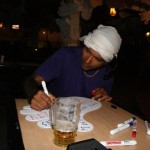 If we were to map a theka trail, it would draw a broad right angle across India; a good idea, if you ask me. Not only you see the land in all its sizzling glory, but you are really sipping into a piece of the region’s history, culture and tradition. And even mystery: otherwise why is zutho made only in the North East and not in the south? Rice abounds in both parts of the country. And there is cashew in Kerala but feni is ethnic to Goa. Why? On the same vein, why toddy doesn’t move ground in Goa? All it takes to drown these worrisome queries is two.
If we were to map a theka trail, it would draw a broad right angle across India; a good idea, if you ask me. Not only you see the land in all its sizzling glory, but you are really sipping into a piece of the region’s history, culture and tradition. And even mystery: otherwise why is zutho made only in the North East and not in the south? Rice abounds in both parts of the country. And there is cashew in Kerala but feni is ethnic to Goa. Why? On the same vein, why toddy doesn’t move ground in Goa? All it takes to drown these worrisome queries is two.
Now, cheers to that!


